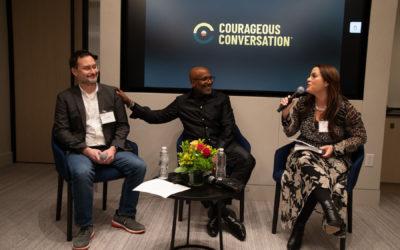By Blair Foster and Michèle Stephenson—July 1, 2015
Why do so many white people find it extremely uncomfortable to talk about race? Setting out to make the next installment of our Op-Doc video series about race in America, we hoped to address that question. Because we live in New York, where there is no shortage of opinions, we didn’t think it would be too hard to find white people willing to speak publicly on this topic. We were wrong.
The people we ultimately found to start the conversation on this fraught topic were uniformly well-meaning and in favor of equality. Certainly they didn’t consider themselves racists. Racism is something that is perpetrated by other people — the ones complaining about affirmative action, refusing to take down their Confederate flags and sharing racist jokes. But if so few people identify as racist, why are racial tensions so pervasive right now? Subtle racism is harder to confront.
It has become easier for white people to think about race through the superficial lens of thinking about other people, instead of themselves. Indeed, most of the people in this Op-Doc hadn’t given much thought to being white other than that it was obvious by the color of their skin. But when we dug a bit deeper, the discussion gets tense, and visibly uncomfortable.
With this Op-Doc video, we’ve attempted to lean into that discomfort and prompt some self-reflection. We are all part of this system, and therefore we all have a responsibility to work toward dismantling it. If we’re going to have an honest conversation about race in America, that includes thinking — and talking — about what it means to be white in America. It might be uncomfortable, but it’s a conversation that must involve all of us.
Watch at the New York Times.




